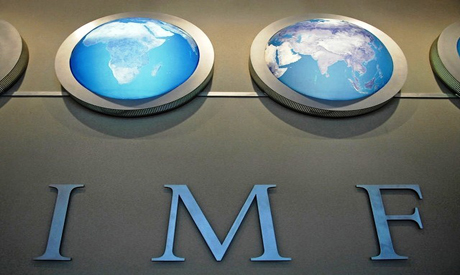
A delegation from the IMF to discuss a loan to Egypt will visit the country this month. (Photo: Reuters)
Spending cuts, more efficient tax collection, more varied debt sources, wage-cuts for high-ranking officials and a slashing of energy subsidies. These are the main economic strategies the Egyptian government will discuss with an International Monetary Fund (IMF) delegation when it restarts negotiations for a $3.2 billion loan later this month, according to Hani Qadri Dimyan, Egypt's deputy minister of finance.
He added that the social aspect is also of major importance, as part of the savings should be allocated for the poorest classes.
The IMF visit, which was supposed to take place in December, has been rescheduled for 15 January, according to a recent announcement by Momtaz El-Said, minister of finance.
Hani Qadri Dimyan stressed that the deal with the IMF does not include any imposition of conditions from the international institution.
"The government has its national economic programme regardless of whether there is a deal or not with the Fund. The IMF will discuss this programme with the government without imposing anything; they listen to us and understand our objections. In any case the two parts are keen to have a successful programme," explained Dimyan, adding that it is normal that any financial institute has to monitor its spending.
"The IMF has a board of administration that questions its spending. Egypt is a member of the IMF board and a founding member; we actually do the same when it comes to other countries."
Dimyan explained that the major importance of the loan comes not from the government’s need for this money only but from the credibility any agreement with the IMF will give to Egypt in the international market, especially after its rating has been downgraded by international rating agencies.
After the January 25 revolution, Egypt received many promises of loans and even donations from different countries and institutions. The G8 promised between $20 and $30 billion for the Arab Spring countries, mentioning mainly Egypt and Tunisia. But none of this money has yet arrived. The Egyptian government has, however, received a $1 billion donation; half of it from Saudi Arabia and the other from Qatar, although the two countries had promised several billion.
In June 2011, Egypt's military rulers rejected a $3.2 billion facility from the IMF just before a deal was concluded. They cited their unwillingness to increase Egypt's foreign exposure as reason for their decision. However, with the continued deterioration of Egypt's fiscal status, and mounting pressures on the local currency, Egyptian officials resumed negotiations with the global fund.
The IMF visit was initially postponed after the Egypt military attacked protesters outside the Cabinet building on 16 December.
Short link: